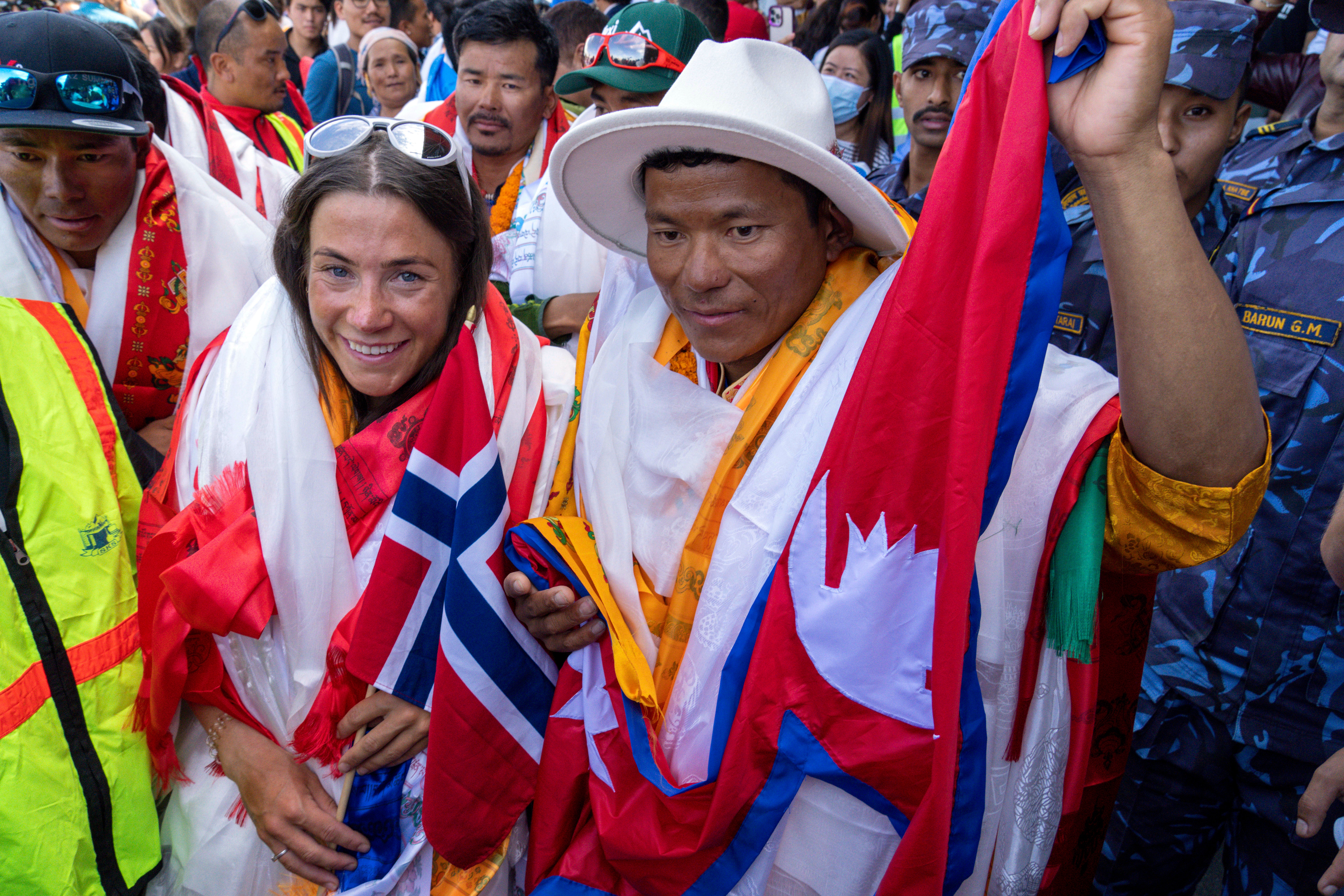Pakistan investigates claims that porter was left to die during Norwegian climber's K2 record quest
A Pakistani mountaineer says an investigation has been launched into the death of a Pakistani porter near the peak of the world’s most treacherous mountain

An investigation has been launched into the death of a Pakistani porter near the peak of the world's most treacherous mountain, a Pakistani mountaineer said Saturday, following allegations that dozens of climbers eager to reach the summit had walked past the man after he was gravely injured in a fall.
The accusations surrounding events on July 27 on K2, the world's second-highest peak, overshadowed a record established by Norwegian climber Kristin Harila and her Sherpa guide Tenjin. By climbing K2 that day, they became the world's fastest climbers, scaling the world's 14 highest mountains in 92 days.
Harila rejected any responsibility for the death of the porter, Mohammed Hassan, a 27-year-old father of three who slipped and fell off a narrow trail in a particularly dangerous area of K2 known as the bottleneck. In an Instagram post Friday, she wrote that she felt “angry at how many people have been blaming others for this tragic death” and that no one was at fault.
Harila was defending herself against allegations from two other climbers who were on K2 that day, Austrian Wilhelm Steindl and German Philip Flaemig. The pair had aborted their climb because of difficult weather conditions, but said they reconstructed the events later by reviewing drone footage.
The footage showed dozens of climbers passing a gravely injured Hassan instead of coming to his rescue, Steindl told The Associated Press on Saturday. He alleged that the porter could have been saved if the other climbers, including Harila and her team, had given up attempts to reach the summit.
“There is a double standard here. If I or any other Westerner had been lying there, everything would have been done to save them," Steindl said. “Everyone would have had to turn back to bring the injured person back down to the valley.”
Harila told Sky News that Hassan had been dangling from a rope, head down, after his fall at the bottleneck, which she described as “probably the most dangerous part of K2.” She said that after about an hour, her team was able to pull him back onto the trail.
At some point, she and another person from her team decided to continue to the top while another team member stayed with Hassan, giving him warm water and oxygen from his own mask, the climber said.
Harila said she decided to continue moving toward the summit because her forward fixing team also ran into difficulties which she did not further detail in the interview.
Asked about Hassan’s gear, Harila said that he did not wear a down suit and he didn’t have gloves, nor did he have oxygen. “We didn’t see any sign of either a mask or oxygen tank,” she said.
Meanwhile, an investigation has been launched into Hassan's death, said Karrar Haidri, the secretary of the Pakistan Alpine Club, a sports organization that also serves as the governing body for mountaineering in Pakistan. The investigation is being conducted by officials in the Gilgit-Baltistan region which has jurisdiction over K2, said Haidri.
Anwar Syed, the head of Lela Peak Expedition, the company handling Harila's expedition, said Hassan died about 150 meters (490 feet) below the summit. He said several people tried to help, providing oxygen and warmth, to no avail.
Syed said that because of the bottleneck's dangerous conditions, it would not be possible to retrieve Hassan's body and hand it to the family. He said his company gave money to Hassan's family and would continue to help, but did not elaborate.
Asked about Hassan's apparent lack of equipment, Syed said the expedition company pays money to porters to buy gear, and that Hassan was paid the agreed upon amount.
Steindl's fellow climber, Flaemig, alleged in an interview with the Austrian newspaper Der Standard that Hassan had no high-altitude experience. “He wasn't equipped properly. He did not have experience. He was a base camp porter and for the first time was picked to be a high-altitude porter. He wasn't qualified for this," he said.
Steindl visited Hassan's family and set up a crowd-funding campaign. After three days, donations reached more than 114,000 euros ($125,000) Saturday.
“I saw the suffering of the family,” Steindl told AP. "The widow told me that her husband did all this so that his children would have a chance in life, so that they could go to school.”
___
Grieshaber reported from Berlin.
Bookmark popover
Removed from bookmarks